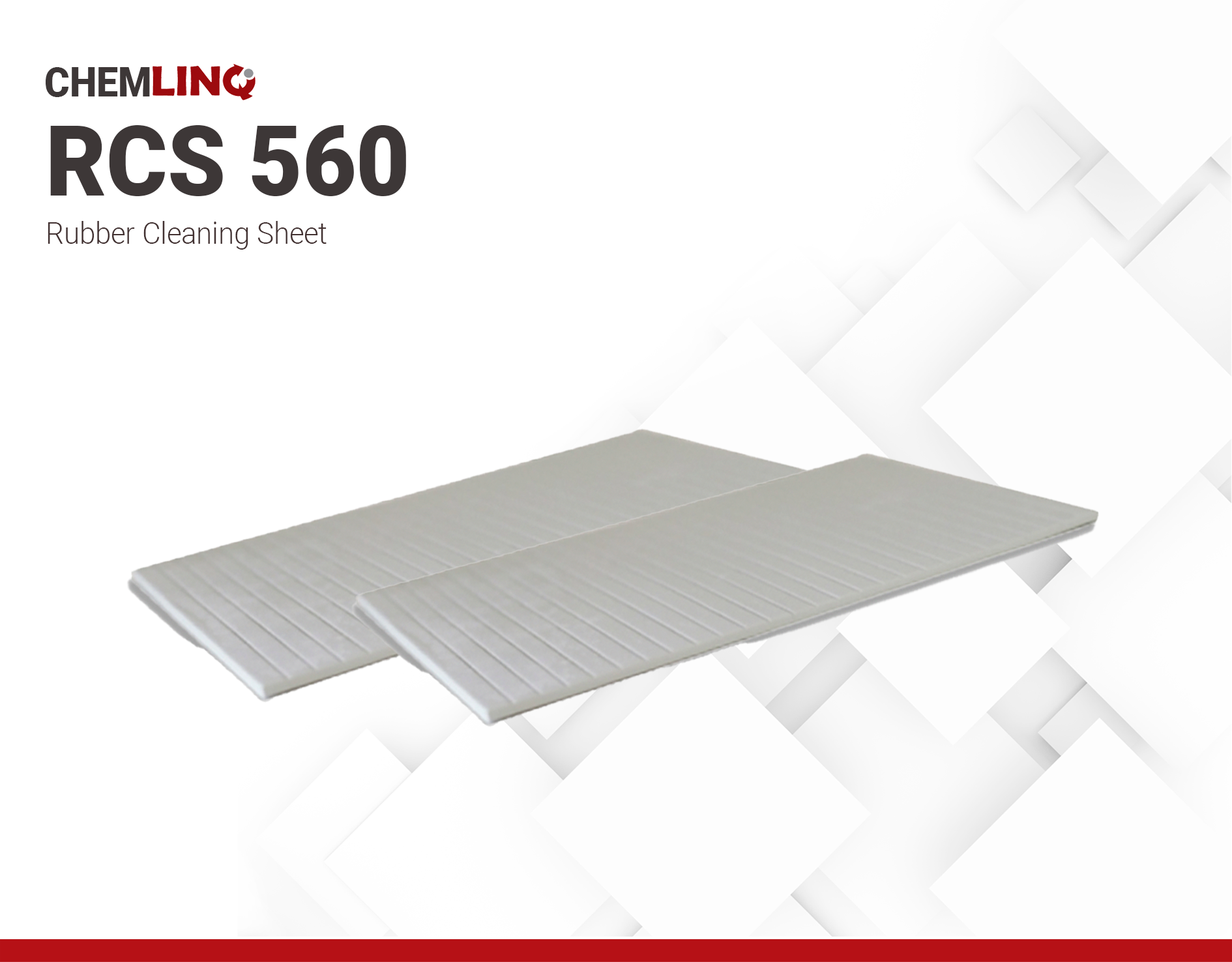RCS 560 | Rubber Cleaning Sheets
- High torque, high cleaning efficiency for deep residues
- No mold abrasion & corrosion
- Minimal odor
Product Description
CHEMLINQ RCS 560 rubber cleaning sheets are formulated to effectively remove EMC-related contaminants from mold surfaces. Specifically designed for the semiconductor industry, these sheets are ideal for cleaning molds used in the production of ICs, diodes, transistors, and LEDs. During the molding and curing process, CHEMLINQ RCS 560 applies high pressure and conforms well to the mold surface. It exhibits stronger mechanical strength leading to more aggressive cleaning targeting deep-seated residues and stains in air vents, corners, gate areas, and other intricate mold features. CHEMLINQ RCS 560 also fills complex shapes and micro-sized mold cavities without incomplete fill issues. It does not require lead frames nor preheating during mold cleaning, further streamlining the cleaning process. Contact us for custom cleaning sheet dimensions.
Product Key Features
- Low Odor and Fumes Emission: formulated for more comfortable and safer working environment with significantly reduced smell and fumes during and after the cleaning process.
- Excellent Cleaning Ability: stronger mechanical strength leading to more aggressive cleaning targeting deep-seated residues and stains in air vents, corners, gate areas
- Elimination of Incomplete Fills: ensures consistent and high-quality production.
- Gentle Cleaning: cleans without causing abrasion or corrosion to your valuable molds, extending their lifespan and maintaining their integrity.
- Versatile: Unlike traditional melamine cleaners, RCS 560 is also effective in cleaning air ventilation areas.
Technical Specifications
| General Properties | |||||||
| Appearance Appearance Appearance at room temperature. | White | ||||||
| Compression Pressure | 3-15 Kg/cm2 | ||||||
| Specific Gravity Specific Gravity Specific gravity (SG) is the ratio of the density of a substance to the density of a reference substance; equivalently, it is the ratio of the mass of a substance to the mass of a reference substance for the same given volume. For liquids, the reference substance is almost always water (1), while for gases, it is air (1.18) at room temperature. Specific gravity is unitless. | 1.12-1.22 | ||||||
| Curing Conditions | |||||||
| |||||||
Additional Information
Selecting between RCS 560 & 550
| Property | CHEMLINQ RCS 550 | CHEMLINQ RCS 560 |
| Torque | Lower Minimum: 0.6 ~ 0.8 N•m Maximum: 4.8 ~ 5.2 N•m | Higher Minimum: 1 ~ 1.24 N•m Maximum: 9.6 ~ 10.6 N•m |
| Applications | Molds with more intricate shapes where there is a substantial amount of residue build up. RCS 550 is a genlter rubber cleaning sheet. | Molds that require more thorough cleaning and can withstand higher mechanical force during the molding process. RCS 560 cleans more agressively. |
Directions for Use
- Load the rubber cleaner on to mold surface following the standard operational procedure.
- Add more RCS 560 if lack of rubber flow is observed within the mold cavities.
- Apply pressure to the rubber cleaner and adjust the cure time depending on the semiconductor mold settings.
- Mold temperature
- ~165 ℃: ~420 sec cure time
- ~175 ℃: ~300 sec cure time
- Adjustments:
- Higher temperature → lower cure time
- Lower temperature → higher cure time
- After cleaning, unload rubber sheets and inspect the condition of the mold press.
- Repeat the cleaning process 3-5 times as necessary to ensure thorough clean of mold press.



